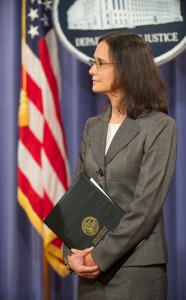Attorney General Seeks Authorization for Payments for Critical Services
Chronicle Media — July 3, 2015Chicago — Attorney General Lisa Madigan filed an action in Cook County Circuit Court on July 2 seeking a court order clarifying that the State can continue to make legally authorized payments to fund critical government services in a timely manner.
Without a State budget in place, the Illinois Constitution and laws significantly limit the payments that the State can make. In preparation for the start of the new fiscal year, the Attorney General has been working with Comptroller Leslie Geissler Munger to determine what payments can continue without a State budget in place. Based on those preparations, this action seeks clear court approval for the Comptroller to make payments that do not legally require an appropriation by the Legislature, including payments authorized by specific state statutes, payments for services required under court consent decrees and payments to continue participating in federal programs. These payments help fund critical government services, such as medical care for children in foster care, residential placements for mentally disabled individuals, food assistance for low-income families, and the operation of the state hotline to report child abuse and neglect.
The action also asks the court to clarify the State’s obligation to comply with the federal Fair Labor Standards Act by paying State employees the federal minimum wage until a budget is enacted and they can receive their full paychecks.
Statement from Attorney General Lisa Madigan
“The Illinois Constitution clearly states that without a budget, the State’s authority to fund government operations and services is severely limited. I am bringing this action to ensure that legally supported expenditures can continue to be made and to address the question of how the state payroll is legally managed during the budget impasse.
Our state’s most vulnerable residents deserve access to the critical services that their lives depend on. Taxpayers deserve to benefit from the government operations they help fund, and state employees deserve to be paid. Unfortunately, without a budget, it is difficult to ensure these payments are made. It is my job as the lawyer for the State to ensure that to the greatest extent possible under the law, we deliver on those promises. This action is the best approach to quickly and efficiently resolve these challenges.
It is my hope that by securing a court order clarifying these expenditures, the Legislature and the Governor can enact a budget to fund State government for the new fiscal year. If not, I fear those who need the State’s services the most will suffer the greatest.”








